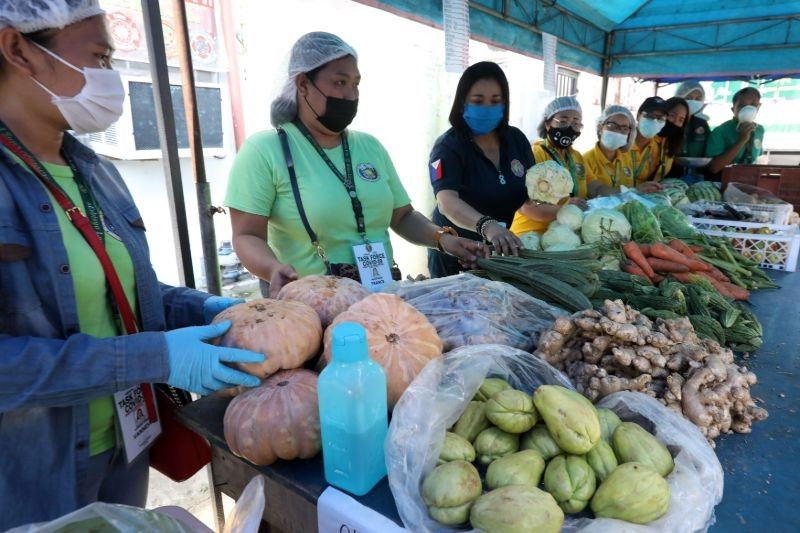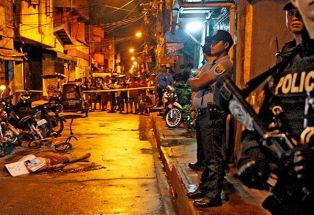58% of Filipinos unable to buy essential items amid COVID-19 outbreak — survey

MANILA, Philippines — An estimated 39.8 million Filipino adults have been unable to buy essential items in the last month, according to data from a new study.
Finance service website Finder Philippines discovered this in a survey of 2,021 Filipino adults from March 16-18. The website did not give details on its sampling method.
During that stretch, President Rodrigo Duterte declared an enhanced community quarantine over all of mainland Luzon as the national total of COVID-19 patients rose from 127 to 178 in just three days.
As of this writing, Luzon is in the middle of its third week under enhanced community quarantine, which has severely restricted movement and has largely left the vulnerable grappling with uncertainty.
READ: Told to stay home, Filipino poor go out to work absent government aid
According to the survey's findings, respondents living in the Philippines had the most difficulty buying fresh food, with 27% reporting they were been unable to buy fresh food in the last month.
One in five Filipinos (22%) has been unable to buy medicine in the past month, the most of any country included in the survey, while the Philippines also recorded the highest number of people unable to buy essential goods (58%) among five countries surveyed.
Older Filipinos, particularly those within ages 45-54, also reported having the hardest time buying necessities, as an estimated three out of every five Filipinos (61%) in this bracket couldn’t purchase at least one of the items in the survey.
When it came to gender, more women (59%) generally found it harder to make a purchase compared to men (55%).
RELATED: Women with Disabilities Day passes with women, PWDs still facing hurdles in access and mobility
Data from Finder also showed that many Filipinos were unable to purchase the following essential goods:
| Fresh food | 27% |
| Toilet paper or tissue | 16% |
| Hand sanitizer or soap | 26% |
| Other toiletries | 14% |
| Medicine | 22% |
| Dry food | 17% |
“The overall number of those unable to buy necessities is incredibly high at 58%,” Finder global editor-in-chief Angus Kidman said.
“It’s especially concerning that Filipinos have been unable to buy fresh food and hand sanitizer, both of which are crucial to keeping healthy.”
In terms of products, Filipinos said they had the hardest time acquiring fresh food and hand sanitizer, with one in four reporting they were unable to buy any in the past month.
READ: Why hoarding medical supplies is bad for everyone, including you
The Bayanihan Heal as One Act of 2020, which handed the chief executive special powers to fight the spread of novel coronavirus, authorizes President Duterte in Section 4(i) to:
Continue to enforce measures to protect the people from hoarding, profiteering, injurious speculations, manipulation of prices, product deceptions, and cartels, monopolies, or other combinations in restraint of trade, or other pernicious practices affecting the supply, distribution and movement of food, clothing, hygiene and sanitation products, medicine and medical products, fuel, fertilizers, chemicals, building materials, implements, machinery equipment and spare parts required in agriculture, industry and other essential services, and other articles of prime necessity
As of this writing, there are currently 2,084 confirmed patients of the new pathogen in the country after 538 new cases were reported by the DOH on Tuesday afternoon.
The United Nations has warned the international community that the "whole of humanity" was put at risk by the novel coronavirus, saying millions could day if collective action was not taken.
If you believe you have come into possible contact with infected patients, you may be directed to the proper office of the Department of Health for advice through the following lines: (632) 8651-7800 local 1149/1150 or (632) 165-364.
You may also opt to call the Research Institute for Tropical Medicine at (02) 8807-2631/ 8807-2632/ 8807-2637.
- Latest
- Trending





























